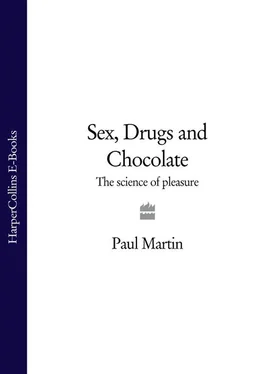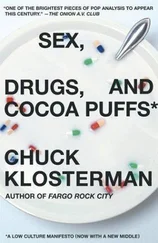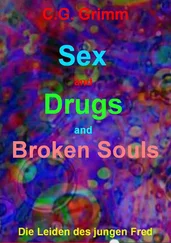If it were true that the hit from mainlining heroin really is miles better than the best orgasm multiplied by twenty, then imagine how it feels while simultaneously plunging to earth at terminal velocity from a great height. This challenging form of recreational activity, known as pharma-diving, is imagined in Aniruddha Bahal’s novel Bunker 13 . The fictional pharma-diver feels like a seer, soaring and swooping in heaven. He sees the ground rushing towards him but the act of pulling the ripcord is almost an afterthought, so deep is his tranquillity. Injecting yourself in a vein can be tricky during free fall, with only sixty seconds to play with before total oblivion. The solution, according to Bahal, is to pharma-dive in pairs, with one parachutist administering the injection while the other plummets ‘in a beautiful bubble of stupefaction’. Please do not try this at home.
In case the hugely illegal and life-threatening thrills of pharma-diving fall outside your personal comfort zone, there is always chocolate to fall back on. The sensual pleasures of chocolate may be somewhat less extreme, but they have a subtlety and depth of their own, especially when the substance consumed is the real thing, rather than the sugary industrial pap that often masquerades as chocolate. Here, for example, is how the chocophile Paul Richardson described the final phase of one brief encounter with a small chunk of Venezuelan Gran Samán:
The flavours lingered on in the mouth and in the mind, reaching a nice sort of closure with a brilliant final twist of espresso coffee. Infused with a sensation of physical contentment, together with a feeling that I would not be requiring for some time another bite, another nibble, another whiff of this twenty-four-carat black gold, I pushed the recline button and lay back in my seat.
Beyond the universal pleasures of sex, drugs and chocolate lie more personalised joys. Each of us has our own preferred sources, perhaps discovered by happy accident. We all harbour different ideas of what constitutes ultimate bliss – or heaven, as some call it. With one eye perhaps on posterity, John Keats claimed that heaven for him meant books, fruit, French wine, fine weather and a little music out of doors played by somebody he did not know. For Auberon Waugh it was playing bridge on a summer’s afternoon with agreeable companions while drinking crème de menthe frappée through a straw. Hmm. The writer Iain Banks said that his idea of what heaven would look like was the wine cellar of the Champanay Inn at Linlithgow in Scotland – if it didn’t have windows. And if he wasn’t an atheist.
The heights of pleasure can be found in even more idiosyncratic places. Intense joy came to Albert Camus when swimming in the ocean and to Michel de Montaigne when his kidney stones stopped hurting. ‘Is there anything so delightful’, he wrote, ‘as that sudden revolution when I pass from the extreme pain of voiding my stone, and recover, in a flash, the beauteous light of health, full and free?’ Dostoevsky experienced raptures of delight before one of his recurrent epileptic attacks, describing it as ‘a feeling of happiness such as it is quite impossible to imagine in a normal state and which other people have no idea of’. When asked to nominate his most joyful experience, the legendary Soho drinker Jeffrey Bernard recalled catching a ball in a cricket match after running in twenty yards from deep mid-off to extra cover. The gentle pleasures of cricket might have fallen short of the mark for Vaughan, a character in J.G. Ballard’s novel Crash . For him, the supreme ecstasy was to die in an orgasmic head-on vehicle collision with the actress Elizabeth Taylor’s car. You might regard that as an overspecialised taste.
Hedonism then and now
A life lived for the pursuit of pleasure is the life of a hedonist. We are therefore all hedonists to some degree, because pleasure is plumbed deep into our brain. As we shall see in the next chapter, pleasure is a biological currency which evolved to guide our everyday behaviour. Even so, the unrestrained pursuit of pleasure, when taken to extremes, is rarely an enjoyable spectacle for onlookers and can end in tears for the hedonist.
What happens when someone with a powerful lust for pleasure can have absolutely anything they want, within the limits of physics and chemistry? The Roman Empire offers some illuminating case histories. As far as the puritans of later ages were concerned, imperial Rome epitomised the worst kind of decadence and deserved to collapse under the weight of its own sin. For a student of pleasure, it is a rich source of data.
The highs and lows of Roman hedonism were chronicled by Suetonius in his history of The Twelve Caesars , written almost two thousand years ago. It recounts the lives of successive Roman emperors from Julius Caesar, who was assassinated in 44 BC, to Domitian, who died in AD 96. Suetonius is deliciously revealing (if not always entirely reliable) about the chosen pleasures of these twelve unimaginably powerful men. His catalogue starts relatively mildly with Julius Caesar, who merely enjoyed luxury and sex. Julius was succeeded by Augustus, who was excessively fond of sex, expensive furniture, Corinthian bronzes and gambling. Augustus was a notorious womaniser. Even in old age, he revelled in deflowering virgins, who were collected for him from all over the empire. He was also a gambler, and proud of it. We will return to the addictive snares of gambling later.
Augustus was succeeded by Tiberius, who succumbed to what Suetonius calls ‘all the vicious passions’. In his youth, Tiberius Claudius Nero was such a heavy drinker that he acquired the nickname ‘Biberius Caldius Mero’, meaning ‘drinker of hot undiluted wine’. (There will be no more Latin jokes in this book, I promise.) As emperor, he demonstrated the double standards of many rulers up to the present day: while campaigning publicly to raise standards of morality, he spent much of his private time in orgies of feasting, whoring and boozing. Hedonism even acquired a bureaucratic status under Tiberius, who established the official position of Comptroller of Pleasures.
Tiberius’s hedonism burgeoned after he retired to his private pleasure-ground of Capri. There, Suetonius tells us, groups of young men and women performed exotic sexual acts in front of the emperor to titillate his ageing libido. The rooms of his Capri pleasure palace were decorated with the most erotic pictures, books and statues obtainable, including sex manuals from Egypt and puppets demonstrating ‘wanton postures’. Suetonius found certain aspects of Tiberius’s lewdness too vile to elaborate on, although he drops some pretty strong hints. Young boys, whom Tiberius called his little fishes, were trained to follow him when he went swimming and to get between his legs and lick and nibble him. We are also told that Tiberius used babies not yet weaned from their mother’s breast ‘to suck at his breast or groin’. On one occasion, the disgusting old lecher took a fancy to a young acolyte at a ceremonial sacrifice; he could barely wait for the ceremony to end before bundling the young man and his brother, who was the sacred trumpeter, out of the temple and indecently assaulting both of them. When they protested at his outrageous behaviour he had their legs broken. Tiberius was succeeded by Gaius, known as Caligula, who continued in much the same way.
Caligula pursued every imaginable form of pleasure with energetic abandon. One of his favourite pastimes was to watch people being tortured and executed. According to Suetonius, he had no regard for anyone’s chastity and enjoyed large numbers of homosexual relationships. One young man revealed publicly that he had ‘buggered the emperor’ and quite worn himself out in the process. Caligula had sex with most women of rank in Rome, including his three sisters. After inviting a selection of respectable ladies to dinner with their husbands, he would examine each one in turn. Later, when the mood took him, he would summon his choice and leave the banquet to have sex with her. After returning to the meal, he would openly discuss her performance with his guests. Caligula’s many other indulgences included drinking pearls dissolved in vinegar and feeding golden bread to his dinner guests. Unsurprisingly, it took him less than a year to squander his fortune. Caligula died at the age of twenty-nine and was succeeded by Claudius.
Читать дальше












